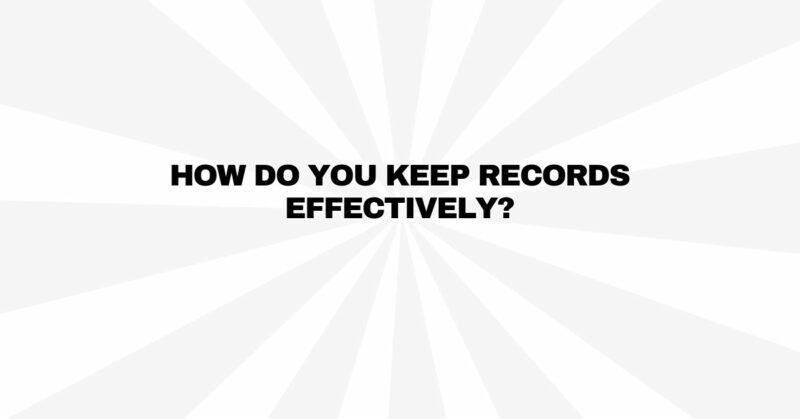Vinyl records have made a remarkable comeback in recent years, attracting both seasoned audiophiles and newcomers to the world of analog sound. To ensure the longevity and sound quality of your vinyl collection, effective storage is paramount. Proper storage not only prevents damage but also enhances the overall listening experience. In this comprehensive guide, we will explore essential tips and practices for keeping your vinyl records in optimal condition.
Why Proper Storage Matters:
Proper storage of vinyl records is crucial for several reasons:
- Preservation of Sound Quality: Protecting your records from dust, dirt, and physical damage ensures that they maintain their original sound quality over time.
- Preventing Warping: Vinyl records are susceptible to warping due to changes in temperature and humidity. Proper storage minimizes the risk of warping, which can affect playback.
- Longevity: Records that are well-preserved can last for decades, allowing you to enjoy your collection for years to come.
Tips for Effective Vinyl Record Storage:
Here are the key practices and tips for storing your vinyl records effectively:
1. Vertical Storage:
Store your records vertically, just like books on a shelf. This prevents the weight of the records from causing warping over time. Use sturdy shelving units designed for vinyl records or custom-built storage solutions.
2. Inner Sleeves:
Always use anti-static inner sleeves to protect the record’s surface from dust and static buildup. These sleeves also reduce friction and prevent surface scratches. Original paper sleeves can be replaced with polythene or polyethylene inner sleeves.
3. Outer Sleeves:
Store your records in plastic outer sleeves to shield them from dust, moisture, and physical damage. Outer sleeves are available in various sizes to accommodate single LPs, double LPs, and other formats.
4. Clean Hands:
Handle records with clean, dry hands. Wash your hands thoroughly before handling records to prevent transferring oils, dirt, or contaminants to the vinyl.
5. Record Jackets:
Keep the original record jackets or covers in good condition, as they provide additional protection against dust and light. If jackets become damaged, consider replacing them with high-quality, acid-free jackets.
6. Controlled Environment:
Maintain a stable and controlled environment for your records. Avoid extreme temperature fluctuations and high humidity levels, as these can lead to warping and mold growth. Ideal conditions are typically around 65-70°F (18-21°C) with 45-50% humidity.
7. Avoid Direct Sunlight:
Store your records away from direct sunlight and sources of heat. Prolonged exposure to UV rays can cause records and jackets to fade and deteriorate.
8. Record Dividers:
Use record dividers or plastic tabs to organize and separate records on your shelves. This prevents friction and reduces the risk of jacket damage when removing or replacing records.
9. Turntable Maintenance:
Regularly clean and maintain your turntable to prevent dust and debris from being transferred to your records during playback.
10. Rotation:
To prevent groove wear and maintain even distribution of weight on the record, periodically rotate the records on your shelves. This practice ensures that one side of the record isn’t exposed to excessive pressure for an extended period.
11. Record Cleaning:
Regularly clean your records using a proper record cleaning solution and a record cleaning brush. This helps remove dust and contaminants that can affect sound quality.
12. Avoid Overcrowding:
Avoid overcrowding your record shelves to prevent records from leaning against each other, which can cause warping or jacket damage.
13. Store Original Pressings Carefully:
If you have valuable or rare original pressings, consider storing them separately or in a protective outer sleeve to prevent any potential damage.
14. Keep a Catalog:
Maintain a catalog or database of your vinyl collection. This helps you keep track of your records and their condition, making it easier to monitor and manage your collection effectively.
Conclusion:
Effective storage is essential for preserving the sound quality and longevity of your vinyl records. By following these tips and practices, you can ensure that your collection remains in optimal condition and continues to provide you with the rich, analog sound that vinyl enthusiasts cherish. With proper care, your vinyl records can bring joy and nostalgia to your listening experience for years to come.


